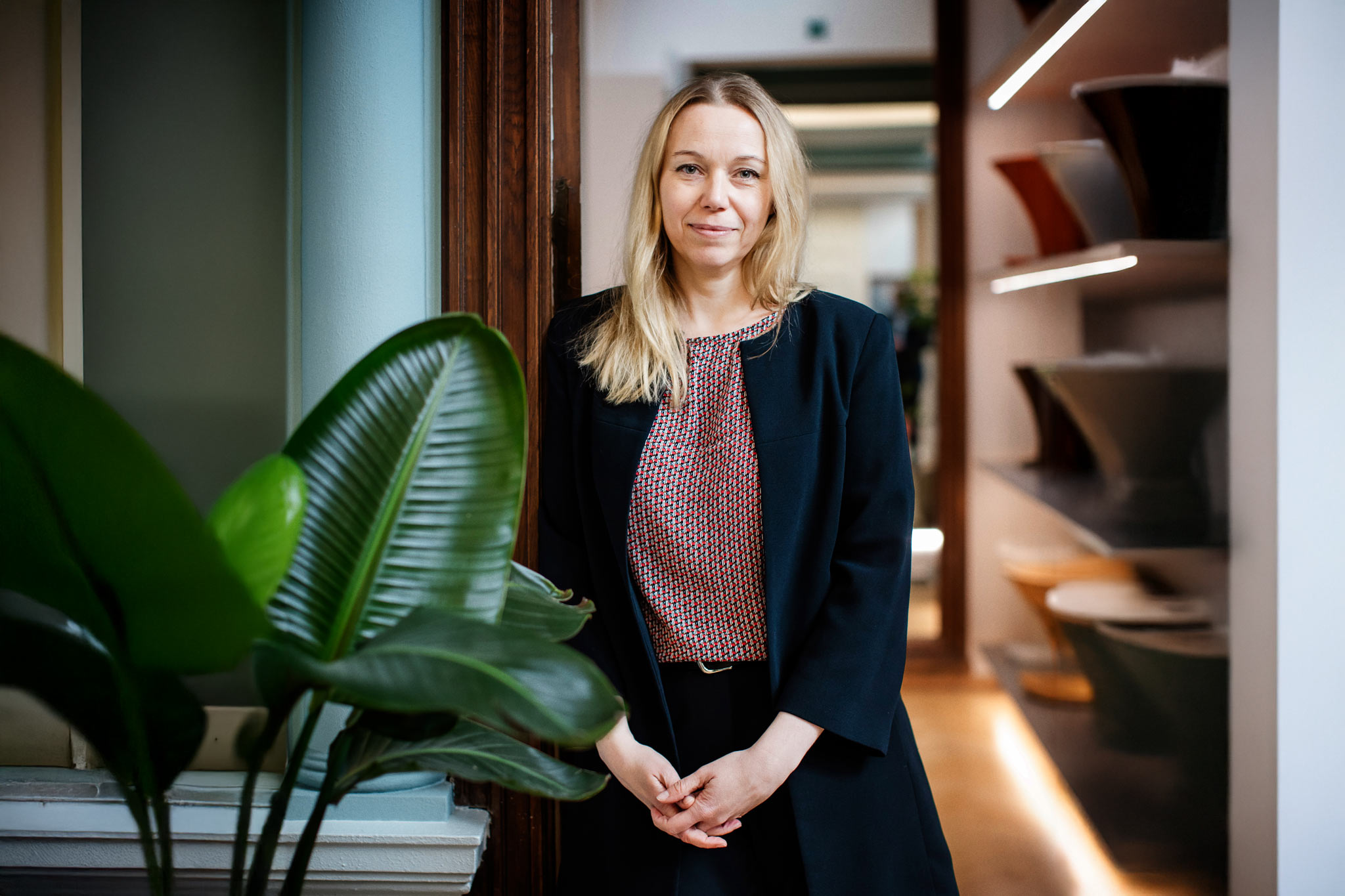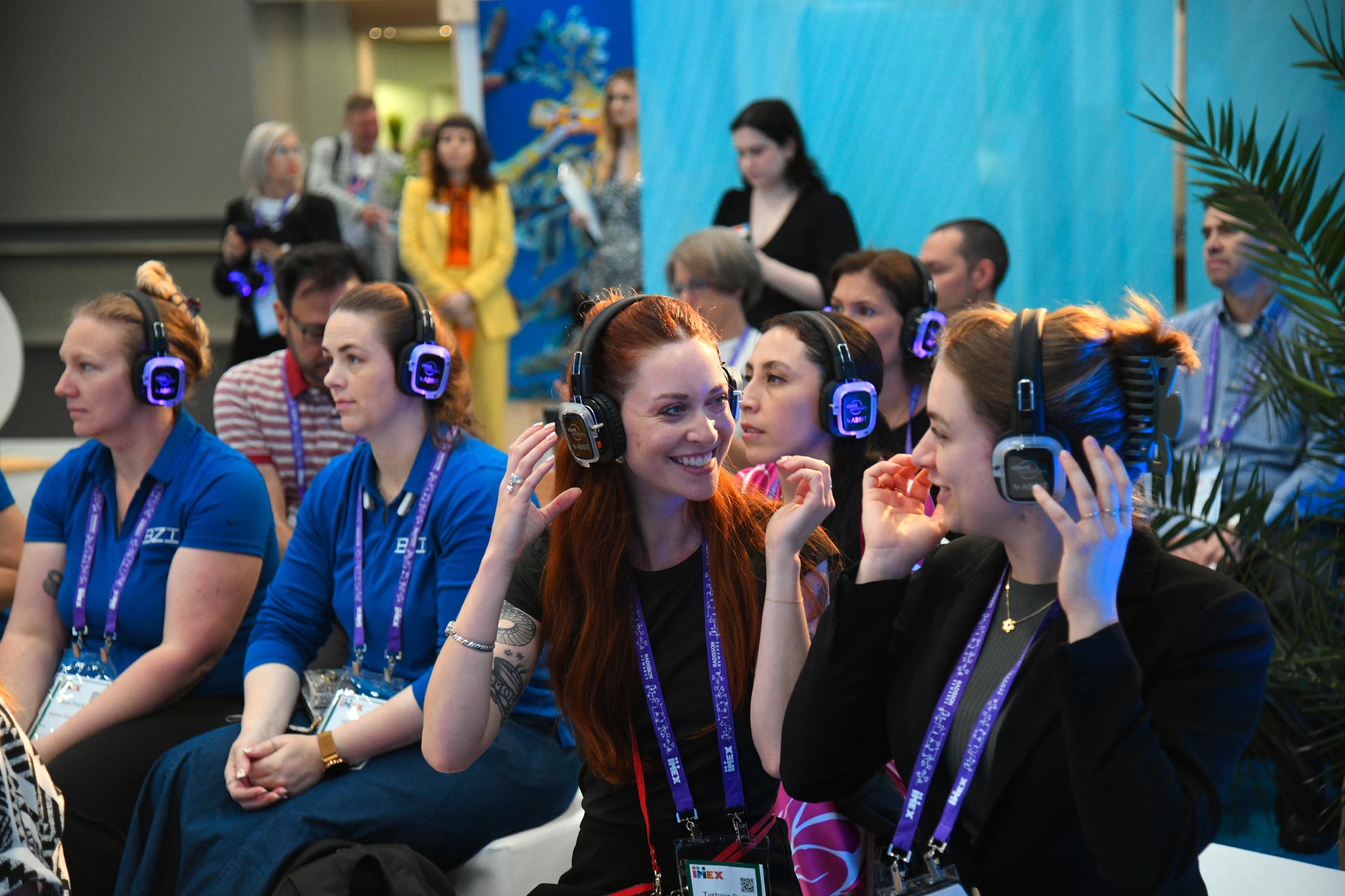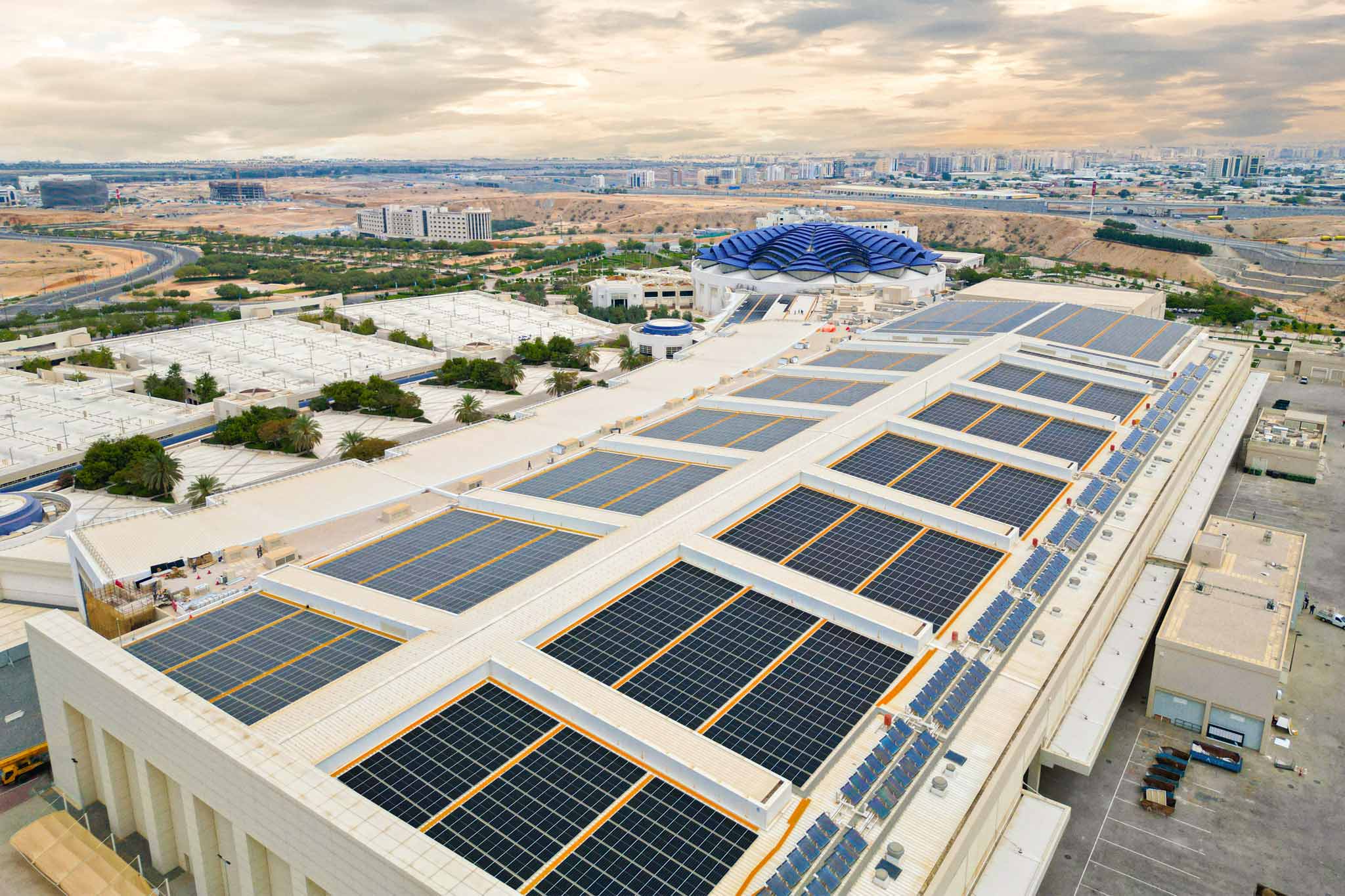The Belgian city of Antwerp has been a central trading hub for centuries and is home to Europe’s second-largest port. It is also the capital of the diamond trade and the world’s second-largest petrochemical cluster. The city is also known for its legacy of fine art, design, contemporary architecture, and fashion, and it once was the home of famous painters such as the Flemish artist Peter Paul Rubens. Antwerp is the biggest city in the region of Flanders, with 174 nationalities and over 510,000 inhabitants.
Tadeja Pivc Coudyser, the CEO of the Antwerp Convention Bureau, has over 15 years of experience in the meetings, events, and travel sectors. Her work spans associations, convention bureaux (CBs), professional congress organisers (PCOs), and travel companies across several countries, including the Netherlands, the United Kingdom, Slovenia, and Belgium. She has also served as Chairperson of the ICCA France-Benelux Chapter.
The convention bureau’s most important questions concern putting the city on the map as a premium business destination for events with 1,000+/2,000+ delegates, especially delivering added value by attracting events in the city’s industry sectors like port, logistics, sustainable chemistry, healthcare, and more.
“We see an outstanding opportunity to attract bigger-scale events, as the city’s meeting infrastructure is highly evolved, and the city can welcome events of different sizes and complexities. Organising an event can create added value in industries where Antwerp is recognised as a leader and is deeply embedded in the city’s economy. It allows organisations to tap into local expertise and networks, creating knowledge-sharing and collaboration opportunities.”
At the same time, the destination needs to create a broader impact on the city’s community and knowledge economy, sustainably aligning and supporting city initiatives and goals. Antwerp adapts its event offerings with broader city initiatives, ensuring that events contribute to business success and the city’s long-term goals.
“This combination of personalisation and alignment with city-wide objectives makes Antwerp a standout destination for business events. All this while offering personalised and professional services to our clients. The convention bureau strongly emphasises personalised, professional support for event organisers. From tailored event management to seamless coordination with local suppliers, the city provides a comprehensive service that addresses each client’s needs.
“Business events bring prestige and recognition to institutions, where they can present themselves and their newest developments, research, and innovations to a global audience. These international events facilitate knowledge exchange and collaboration and are extremely important for universities, hospitals, and key sectors. Also, business events are key to enhancing the city’s and organisation’s profile and reputation worldwide through visibility. In the long term, increased recognition can help attract talent, secure grants, and foster partnerships necessary for continuous development and innovation.”
According to Tedeja Pivc Coudyser, universities and hospitals in Antwerp are not commercial organisations, and they aren’t aiming to create more events. However, they are essential knowledge drivers in the meetings industry. Their approach to event organising is structured around supporting research, development, education, and knowledge sharing, creating impact within their respective fields. They are not commercially driven, but their contributions as knowledge leaders and innovators are essential in attracting high-level conferences, meetings, and exhibitions to the city.
“Antwerp Convention Bureau is happy to support this. However, universities and hospitals are increasingly aware of the broader impact of meetings and conferences on the wider community. With several clients, we started working on the impact trajectory the Visit Flanders Convention Bureau developed. Through these initiatives, associations, universities and other organisations are beginning to understand how to increase the impact that can benefit the entire ecosystem beyond their field.”
“An event can create added value in industries where Antwerp is recognised as a leader and is deeply embedded in the city’s economy”
When it comes to the local politicians and whether they see the potential in business events, Tadeja Pivc Coudyser says they do: “We have strong support from the City of Antwerp, Tourism Flanders, and the Flanders Convention Bureau, and they know the impact the meetings industry has on different levels like economic, social, knowledge, etcetera. Through active collaboration, we strengthen and support each other. It is crucial not only to position the city as a premium meeting destination but also to develop this sector in the region, as in Antwerp.”
For the city and the Antwerp Convention Bureau, the most important strategic question is to systematically bring together a local knowledge community that will allow them to strengthen their proposition on the national and international market in the key industries and leverage the expertise and network.
“This is especially important as we wish to showcase Antwerp’s USPs, attract more relevant events, and create a community where the connection between the education sector, businesses, and the government will grow stronger. It allows us to create visibility and a strong supporting network that benefits all parties.”
When it comes to the practice of building knowledge infrastructure, they are building strong collaboration with local stakeholders: “With Antwerp University Hospital, we work in relationship with structural meetings to align their research focus areas and together identify relevant events for the city and organisation. We were also invited to explain to the new Department Heads about our services and our collaboration, and the professors and doctors are also aware of our services, building recognition within the organisation.”
A representative of Flanders’ Chamber of Commerce and Industry (Voka), is a member of the Antwerp Convention Bureau Board, providing a thorough understanding of industry demands. This setup provides many industry connections and sharing of knowledge crucial to the bureau’s business.
“The team is also encouraged to visit the different institutions and organisations to understand their needs and ambitions, see how we can adapt to our acquisition strategy, and see where we can support them. For example, visiting the incubator Blue Chem to understand what is happening behind the scenes and receive first-hand information provides a better understanding of what the city can offer and also where the city is evolving. It allows us to make meaningful connections.”
Last November, the convention bureau launched its new brand and is now actively going to the market to promote the city of Antwerp as a premium destination for more significant events. In addition to attending industry events, trade shows, and family trips, the bureau’s focus is engaging and connecting with local stakeholders to identify events that bring value and impact to the destination.
“Our slogan ‘The city is your venue’ is approachable, accessible and personal. Next to supporting associations with advice on the venues and logistics, bid book, and finding the right partners, we also look into how to connect the knowledge with stakeholders in the city. We get asked for connections with certain parties that increase the experience and bring local know-how to the event.”
Antwerp Convention Bureau is pleased when local knowledge is being demonstrated. For example, delegates to Sprint Robotics events will have the opportunity to visit different local sites to gain knowledge, and at Euchems Chemistry Congress 2026, they take interested clients to Visit Flanders Convention Bureau to explore impact trajectories.
“The International Spinal Cord Society has been a great inspiration and showed how Antwerp looks broader than only one event. In this case, we had the opportunity to bring together several stakeholders: Visit Flanders Convention Bureau, Visit Antwerp, the City of Antwerp, the Intern and our partners, in order to further the focus on accessibility and physical impairment.”
“We wish to attract more relevant events, and create a community where the connection between the education sector, businesses, and the government will grow stronger”
Talking about being the number two congress city in Belgium – trailing Brussels, a city that is a world hub when it comes to associations, which in turn increases the meetings and conferences business in Brussels – and what this means for the convention bureau of Antwerp, Tadeja Pivc Coudyser is convinced that it’s pure positives for the cities to be so close together.
“Brussels and Antwerp are two different cities with different offerings. While Brussels is a European capital, we see more and more associations looking into organising events outside of Brussels, especially as many have already organised an event there. The associations close to Antwerp’s key sectors especially see the value of bringing the event to our city. Antwerp plays a significant role here, especially when people learn that there is a fast train connection to Paris/Amsterdam and easy reach by train to London. In addition, Zaventem, Brussels International Airport is only a 30-minute train ride away, and Schiphol Amsterdam Airport can be reached in less than an hour by train.”
The long-term strategy for the Antwerp Convention Bureau is to focus on and align the approach with the city and its key clusters. It will support the local knowledge economy and echo Antwerp’s internationally leading position in the key sectors.
“With this, we focus not only on the short-term economic impact but also look into a more cohesive approach and provide broader support for different stakeholders, bringing added value to delegates, associations, and the local community.”
Most events in Antwerp are corporate and national events of a smaller size. Therefore, the ambition is to position Antwerp as a destination for mid-size, and more significant, events (500+, 1,000+, 2,000+) as well as exhibitions in the association market.
“We are all facing important challenges, such as sustainability and legacy, as it is essential to incorporate sustainable practices across events and balance those with client expectations and budgets. Another big topic is digitalisation in our sector. There are many rising trends in this field, and AI also plays a role in them. It’s also a fast-evolving trend, which adds to the complexity. How do you embrace the digital transformation in hospitality and event planning to provide the best service possible, while still keeping the personal touch? Last but not least, we are also still seeing a talent shortage. Retaining and gaining talent is of utmost importance.”
In Tadeja’s Pivc Coudyser’s vision, Antwerp is a premium meeting destination that continues to provide high-level professional and personal service and where everyone feels welcome. It is a destination known for embracing diversity, equity, and inclusion and implementing sustainable practices, finding the right balance between executing the latest cutting-edge technology and continuing to be a destination with approachable, accessible, and personal service contributing to the local community.
“Our city’s meeting infrastructure covers all the essentials, but we strive to go beyond that. In conversations with clients, we focus on adding value and creating meaningful connections for their events. Many are unaware of Antwerp’s rich history and its current significance in the local and European economies. Highlighting these aspects helps us differentiate the city as more than just a meeting destination. Antwerp is a city with deep roots in innovation and progress, with hubs like the incubator Blue Chem, Next Gen, the Beacon, and the Centre for Evaluation of Vaccination, building towards a sustainable future.”



